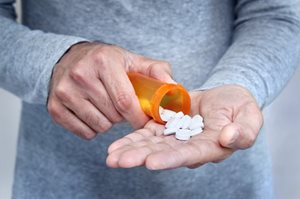That is the question

Many patients struggle to lower their cholesterol, despite taking prescription medications. Others prefer a natural alternative. “Over-the-countersupplements are gaining momentum for those who want something in addition to or instead of medications for managing cholesterol,” says Kristine Ziemba, MSN, FNP-BC, CLS, of CMC’s Cholesterol Management Center. But not all supplements are created equal. While many have shown evidence of lowering lipids, others have not and may actually be harmful in trying to control cholesterol.
The following supplements have evidence of lowering lipids and should only be used in consultation with your cholesterol specialist or primary care provider:
- Niacin/Nicotinic Acid
- EPA /DHA Fish Oil
- Soluble Fiber
- Plant Phytosterols
- Red Yeast Rice
- Soy Protein
- Green Tea Extract
These supplements show no evidence of lowering lipids and are not recommended as a means of controlling cholesterol:
- Artichoke Leaf Extract
- Policosanol (plant extract, beeswax and sugar-cane wax)
- Garlic
- Guggulipid (extract of mukul myrrh
- tree resin)
- Ginseng
- Selenium
The Food and Drug Administration (FDA) does not regulate or monitor over-the-counter dietary and herbal
supplements for safety or consistency in composition. “Supplements also lack clear and consistent evidence that they improve cardiovascular outcomes,” says Ziemba.
If you are considering cholesterol-lowering supplements, be sure to talk first to your cholesterol specialist or primary care provider.
For more formation on controlling your cholesterol, contact the Cholesterol Management Center at CMC’s New England Heart & Vascular Institute at 603.663.6549. To sign up for the Center’s newsletter, Cholesterol Connection, email
lipid@cmc-nh.org.